Ayatollah Ruhollah Khomeini, the founder of the Islamic Revolution, claimed in numerous interviews and speeches before the 1979 establishment of the Islamic Republic that: "We want to act in accordance with the Universal Declaration of Human Rights.”
In a speech on February 18, 1978, he said: "The Declaration of Human Rights – its headline – is the freedom of individuals. Every human being is free, he must be free. Everyone must be equal before the law. Everyone should be free ... to live, free in their jobs, free in their behavior.”
In an interview with Russell Kerr, in November 1978, Khomeini stated: "The Islamic government is based on consideration for human rights. No other form of government has considered human rights as much as Islam. Freedom and democracy are present in Islamic law in its full sense." He added: "Islam guarantees all human rights and affairs." "Now, under the present government [of the Pahlavi monarchy] in Iran, freedom is neither for men nor for women; in Islam, it is for everyone." The founder of the Revolution also stated to Iranians living abroad, on October 30, 1978, that: "We want to act in accordance with the Declaration of Human Rights. We want to be free. We want independence in our country, we want freedom."
But did the Islamic Republic act in accordance with the Universal Declaration of Human Rights, as claimed by Ayatollah Khomeini? Did human rights prevail in Iran after the victory of the Islamic Revolution?
Ayatollah Khomeini's Promises
In his interviews with journalists, recorded speeches that were smuggled into Iran and meetings with leading international figures – especially in the two years immediately before the 1979 Revolution – Khomeini repeatedly emphasized the principles of the Universal Declaration of Human Rights and presented a picture of a future Iranian government built on human rights and freedoms per the Declaration. He strongly defended the rights of women, minorities, the right to equality, the right to self-determination, the rule of law and freedom of expression.
The most important human rights promises made by Ayatollah Khomeini can be summarized as follows:
- “The press must be free; no one has the right to silence journalists.” (June 5, 1964)
- “Press repression must be lifted and state or security agencies must not oversee them.” (October 26, 1964)
- "Islam has never opposed women's liberation; on the contrary, Islam opposes the concept of women as an object and restores her honor and dignity. Women are equal to men. Like men, women are free to choose their own destiny.” (April 24, 1978)
- “The phrase ‘we granted freedom’ [used by the Shah] is a crime. Freedom belongs to the people, the law has given freedom, God has given freedom to the people, Islam has given freedom, the Constitution has given freedom to the people. What is this ‘granting’? What can you give? Who are you to grant anything?” (May 31, 1978)
- "We naturally respect the religious beliefs of others after the overthrow of the dictatorship and the establishment of a free regime. Living conditions will be very good for the Muslim majority and for religious minorities." (October 14, 1978)
- “They should see that this is an inalienable right of the nation ... and that the basis of democracy is that the people should be free in their own votes, in their own choice of representatives to send to parliament. The destiny of a country is in the hands of its representatives and the people should have their destiny in their own hands. The Constitution has given this authority to the people." (October 21, 1978)
- “Freedom is one of the first human rights; it is a basic human right to be free; to be free in one's opinions, to be free in his actions, to be free in his own country.” (October 22, 1978)
- “Women are free in Islamic law; their rights are similar to the rights of men. Islam has freed women from the bondage of men and placed them on a par with men. The propaganda against us [regarding the rights of women] is intended to distract the people.” (November 1978)
- “Women are free to choose their activities and destiny, as well as their clothing, in accordance with [Islamic] standards. And the current experience of activities against the Shah's regime has shown that women have increasingly found their freedom in the form of Islam.” (November 1, 1978)
- “The press is free to publish all facts and figures. Any gatherings and parties on the part of the people are free as long as they do not endanger the interests of the people.” (November 2, 1978)
- “Islam has given more freedom to religious minorities than any other religion or faith. They should also enjoy their natural rights that God has given to all human beings. We take good care of them. In the Islamic Republic, communists are also free to express their opinions.” (November 7, 1978)
- “In the Islamic Republic, everyone has the right to freedom of opinion and expression, but we do not allow any individual or group affiliated with foreign powers to betray us.” (November 29, 1978)
- “Islam has always protected the legitimate rights of religious minorities. They are free in the Islamic Republic and they are free to deal with their issues, under the protection of the Islamic government, like the rest of the people.” (November 28, 1978)
- "In the Islamic system, women have the same rights as men; the right to education, the right to work, the right to property, the right to vote, the right to stand for office. In every way that a man has a right, a woman has a right. However, in men, there are cases in which certain things are forbidden for him because they can lead to corruption, just as with women, there are cases in which certain things are forbidden because they cause corruption. Islam wants men and women to have their human dignity protected. Islam demands that women not to be used by men. It is incorrect, what they say abroad, that women are treated violently in Islam, and it is false propaganda that comes from biased people. Both men and women have authority in Islam. If there are differences, it is for both and it is related to their natures.” (December 7, 1978)
- "Our Sunni brothers are never a religious minority, and we have said many times that we will treat religious minorities very well. Islam respects them. We give them all their rights. They have the right to a representative in parliament and are free to engage in socio-political activities and to practice their religion freely. They are Iranians and, like other Iranians, they will live in complete security under the umbrella of the Islamic government.” (December 28, 1978)
- “Religious minorities are free in the future and will live in prosperity in Iran, and we will treat them fairly and in accordance with the law. They are our Iranian brothers.” (January 8, 1978)
The Victory of the Islamic Revolution and the Miserable Fate of Human Rights in Iran
With the victory of the Revolution of 1979, Khomeini in a number of his speeches and statements further defended some human rights principles and indicated that the Islamic Republic would protect human rights. He said:
- “I have declared that a prisoner in the Islamic government, no matter how guilty, [security agencies] have no right to starve him, no right to slap him, no right to torture him, no right to swear at him. To the extent that he has the right, he should be tried, to be punished for any crime he has committed. No more, no less.” (May 15, 1979)
- “People are free to choose jobs and free to make other types of choices. They are created free. And in Islam they have been granted freedom." (May 13, 1980)
- “The nation, and you, and everyone is free, always, and [are free to vote for] whoever they want to vote for.” (December, 2 1982)
- “No one has the right to detain or summon anyone without a judge's order, which must be in accordance with Sharia law, even if the detention period is short.” (December 2, 1982)
- “[No one has the right] to insult a person and commit inhumane and un-Islamic acts, or to listen to a telephone call or recorded tape of another person in the name of criminal investigation ... even if it is a great sin [or crime] ... [But] all of these are crimes [and] sins, and some of them, such as the spread of prostitution, are very great sins, and the perpetrators of each of the above are criminals and deserve punishment according to Shahria law, and some of them deserve Sharia punishment.” (December 15, 1982)
- “People are free to vote for the person they want [for elected office] and no one has the right to impose themselves or other candidates. No official, party, group or individual has the right to insult others who disagree with them; or God forbid, to reveal their secrets. However, everyone has the right to campaign for themselves or their candidates or others, and no one can deny this right.” (February 11, 1984)
- “People's destiny is in their own hand. ... Elections determine the destiny of a nation. Elections [should not be conducted] just by a few mujtahids. It is the duty of everyone in the nation to participate, it does not belong to any one group.” (February 28, 1984)
But in reality, Khomeini insisted on the observance of Islamic principles, suppressed the opposition and ordered the execution of many of its members, closed down the press, and did not hesitate to refute his previous statements with the following words:
- “The pen is free, but any pen? Expression is free, but any expression? There is a form of speech that puts a country under the control of superpowers. Is this expression free? Is corrupting our country a form of freedom? There are [journalists] that are in contact with Zionism and the like. A newspaper that is run on their budget and does not have a circulation to run itself. Do we have to tell these people that you are free? ... The limits to freedom must be what the nation wants; not to be free against the nation. Man is free. Well, I'm free, I have a gun; can I kill someone? What is this freedom? Freedom has standards.” (May 16, 1980)
- “Freedom does not mean that if someone wants to conspire, he is free to do so ... or to say things that damage the nation or undermine defeat of the [revolutionary] movement. This is not freedom. Within the framework of this movement, the Islamic Revolution, all people are free.” (May 21, 1980)
- “We are not saying that ... anyone who wants to be western has the freedom to come out and drink ... Our freedom is within the limits of the laws of Islam, it is within the limits of human morality, not that, for example, one is free to do whatever he wants in the streets. We must consider both poles of Islam. On the one hand, there should not be [a police state] and things that may offend the people; on the other hand, they should not think that now that [the Revolution] has happened, they can do whatever they want. No, it is not true; it will be severely suppressed. If someone commits debauchery abroad, becomes a prostitute, whatever the form of debauchery, the government must act severely against them, and the guards and police are instructed to crack down on them. If someone does something forbidden ... they should arrest him.” (December 22, 1982)
Widespread human rights violations did occur throughout the the ten years of Khomeini's rule.
- Islamic “guidance” patrols and street patrols were initiated by the the revolutionary komitehs, or committees, leading to arrests and harassment of men and women because of their clothing choices and other apparent infractions against Sharia law;
- Women's hijab became mandatory;
- Music was restricted and the display of musical instruments on television was banned, while women's solo singing ini public was also banned;
- Critics and dissidents of the Islamic Revolution were barred from standing for election and the vetting and disqualification of candidates became routine;
- Large numbers of dissidents were detained, jailed and executed, without due process;
- Properties belonging to opponents of the regime or persecuted minorities was confiscated;
- The age of criminal responsibility was decreased, according to Sharia law, and children's rights were violated;
- Torture, forced confessions, surveillance and other forms of interference by security agencies became commonplace;
- Opaque decision-making by Islamic Republic authorities became the norm;
- Protests across Iran were suppressed;
- Widespread violation of the rights of religious minorities occurred, and members of the Baha'i, Jewish, Christian, and Zoroastrian communities were forced to leave Iran, while Sunni Muslims faced social isolation and the deprivation of their rights.
In a letter to Iran’s judicial authorities responsible for executions, Khomeini said: "Mercy upon warlords [referring to dissidents] is simplistic. The determination of Islam against the enemies of God is one of the undoubted principles of the Islamic system. I hope that, with your revolutionary anger and hatred towards the enemies of Islam, you will satisfy God Almighty. ... Hesitating in the judicial affairs of revolutionary Islam is to ignore the pure blood of the martyrs."
Khomeini’s approach continued and even broadened under the rule of his successor as Supreme Leader, Ayatollah Ali Khamenei, and Iran has since come to be seen as a human rights violator at the international level.
The Islamic Republic was cited by the United Nations Commission on Human Rights for widespread human rights abuses in recent years. The Commission issued resolutions calling on Iran’s government to respect the rights of its citizens and various UN mechanisms have since monitored Iran’s human rights situation.
An international study by Our World in Data, a scientific journal based at Oxford University that focuses on major global issues, shows that the human rights situation in Iran is dire and among the worst in the world. In these surveys, Iran ranks 9.3 out of 10, where 10 is worst.
Khomeini’s promise to respect human rights – as with his many other promises, explored in this series of Factcheck articles – did not come true. The Islamic Republic was formed in a way that was entirely counter to Khomeini’s claims; in fact, his claim to respect the Universal Declaration of Human Rights was one of his most egregious lies, on which he mobilized Iran against the Pahlavi monarch and built the 1979 Islamic Revolution.
Iran today has one of the highest rates of child executions, executions of dissidents, suppression of protests, abuses of women's rights and the rights of minorities, the imprisonment of journalists, closure of the press, while also holding undemocratic elections from which thousands of candidates are barred.
The Iranian people have no share in determining their own destiny at the ballot box. Six jurists on Iran’s Guardian Council decide who has the right to be elected, and the Iranian people are forced to either boycott an election or to elect the people vetted by the Guardian Council. Parliament and the government have no real independence and are fated to implement the autocratic rulings of the Supreme Leader.
Khomeini’s many claims and lies – especially his lie to respect the Universal Declaration of Human Rights – changed the destiny of a nation and betrayed its hopes.
visit the accountability section
In this section of Iran Wire, you can contact the officials and launch your campaign for various problems




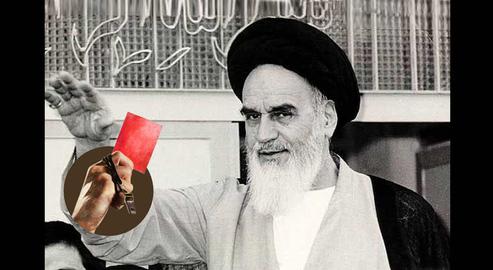


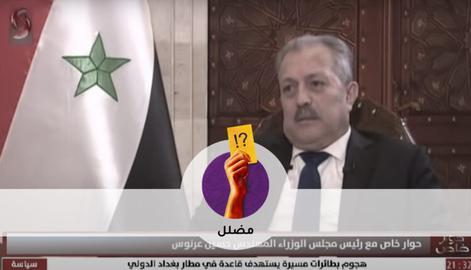

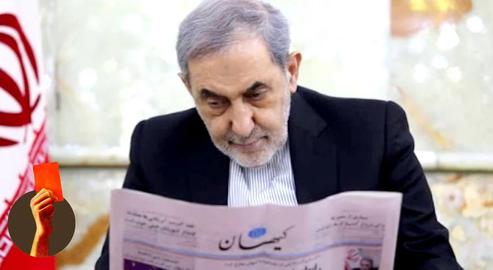

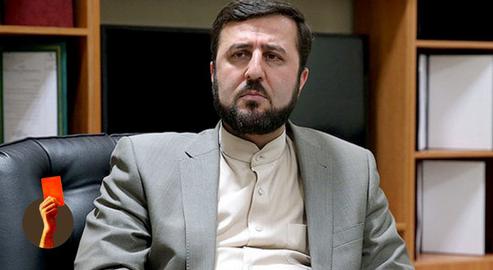
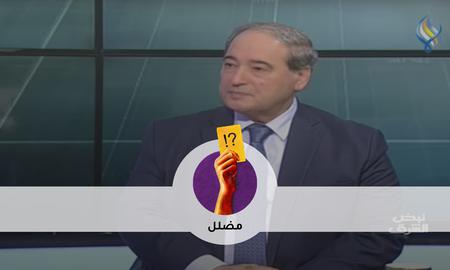
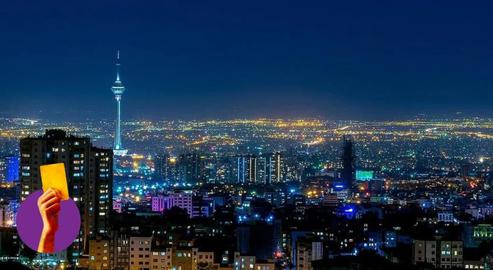
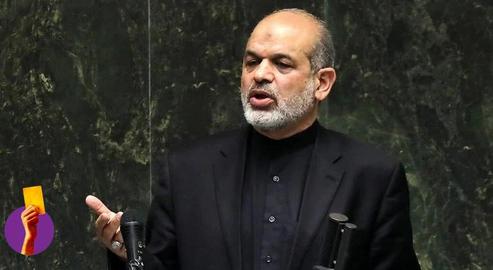
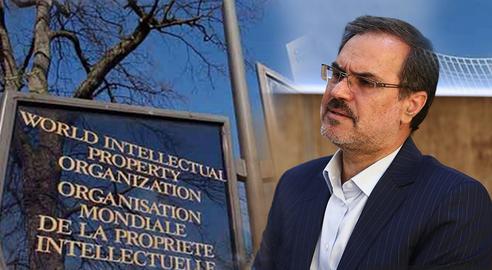

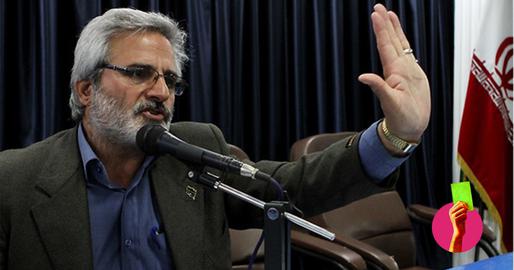
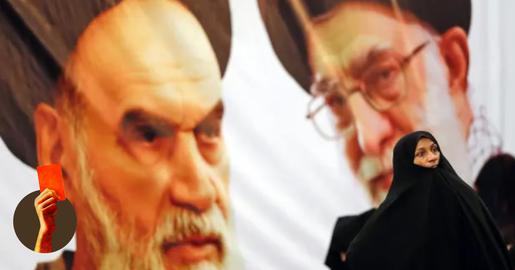
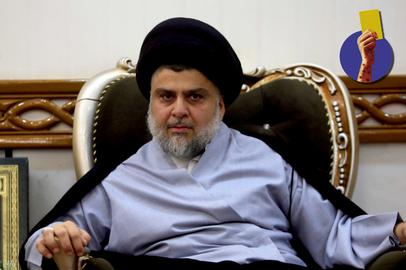
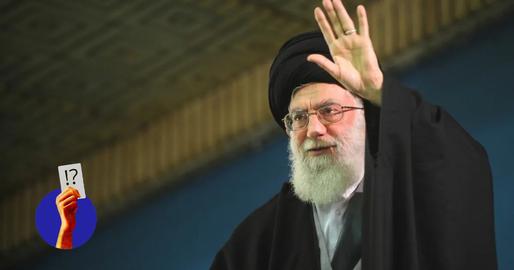

comments